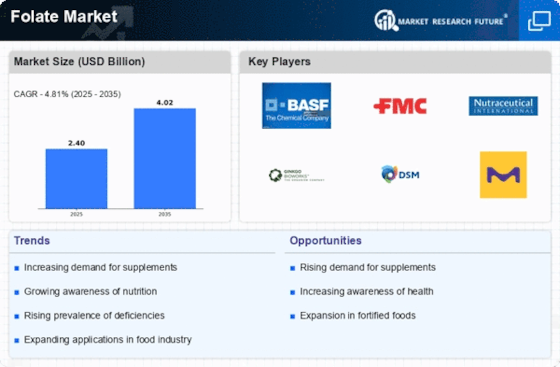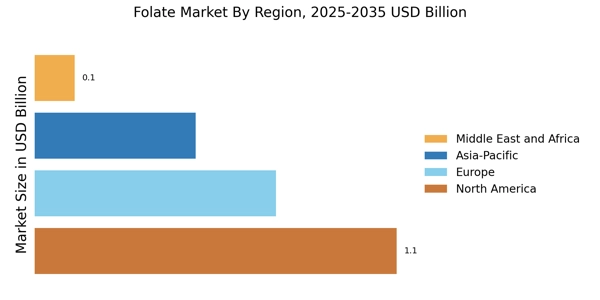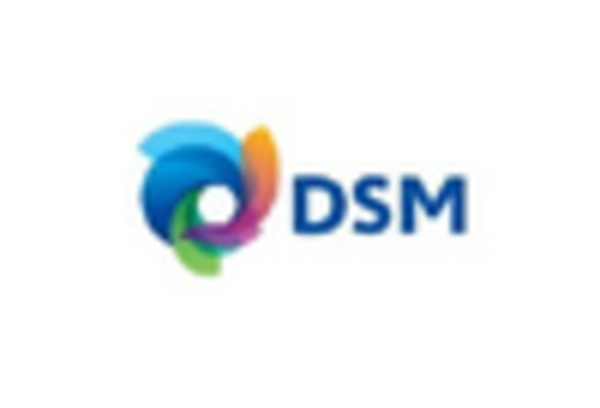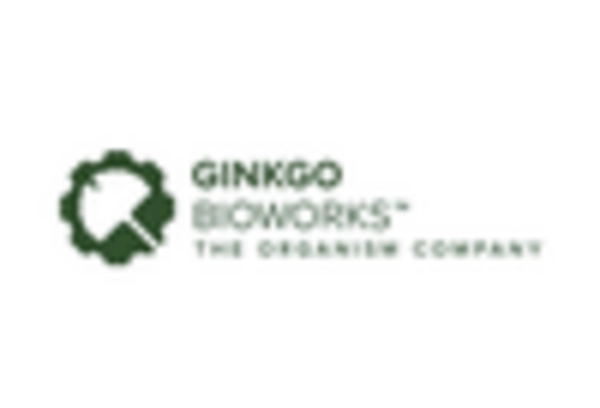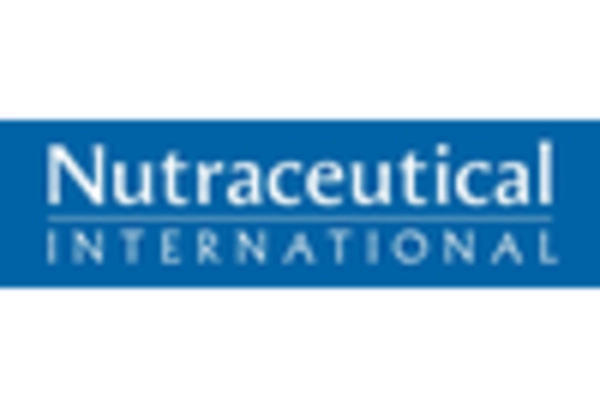Innovations in Food Technology
Innovations in food technology are transforming the folate Market by enabling the development of new and improved folate-enriched products. Advances in food processing and fortification techniques allow manufacturers to enhance the bioavailability of folate in various food items. This technological progress not only improves the nutritional profile of products but also caters to the evolving preferences of consumers who seek convenient and health-oriented options. As a result, the market is witnessing a diversification of folate-containing products, including snacks, beverages, and ready-to-eat meals. This trend is likely to continue, as food technology evolves and consumer demand for functional foods grows within the Folate Market.
Rising Prevalence of Chronic Diseases
The rising prevalence of chronic diseases is another critical driver of the Folate Market. Conditions such as cardiovascular diseases and certain cancers have been linked to folate deficiency, prompting healthcare professionals to recommend adequate folate intake as part of a preventive strategy. This correlation has led to an increased focus on folate-rich diets and supplements among patients and healthcare providers alike. As a result, the demand for folate products is expected to rise, as individuals seek to mitigate health risks associated with chronic diseases. The Folate Market is thus positioned to benefit from this growing awareness and the subsequent demand for folate-enhanced products.
Growing Demand for Dietary Supplements
The growing demand for dietary supplements is significantly influencing the Folate Market. As more individuals turn to supplements to meet their nutritional needs, folate supplements are gaining traction due to their perceived health benefits. Market data indicates that the dietary supplement sector is expanding rapidly, with folate supplements being a prominent category. This trend is driven by factors such as aging populations, increased health awareness, and the desire for preventive healthcare. Consequently, manufacturers are investing in research and development to create innovative folate supplement formulations, thereby enhancing their competitive edge in the Folate Market.
Increased Awareness of Nutritional Benefits
The rising awareness regarding the nutritional benefits of folate is a key driver in the Folate Market. Consumers are increasingly informed about the role of folate in preventing neural tube defects and promoting overall health. This awareness is reflected in the growing demand for folate-rich foods and supplements. According to recent data, the consumption of folate has seen a notable increase, with many individuals actively seeking fortified products. This trend is likely to continue as educational campaigns and health initiatives emphasize the importance of folate in daily diets. Consequently, manufacturers are responding by expanding their product lines to include folate-enriched options, thereby enhancing their market presence in the Folate Market.
Government Regulations and Fortification Policies
Government regulations and fortification policies play a crucial role in shaping the Folate Market. Many countries have implemented mandatory fortification of staple foods with folate to combat deficiencies and improve public health outcomes. For instance, the fortification of flour with folic acid has been adopted in several regions, leading to a measurable decrease in neural tube defects. This regulatory environment not only boosts the consumption of folate but also encourages manufacturers to innovate and develop new products that comply with these standards. As a result, the Folate Market is witnessing a surge in fortified food products, which are becoming increasingly popular among health-conscious consumers.


